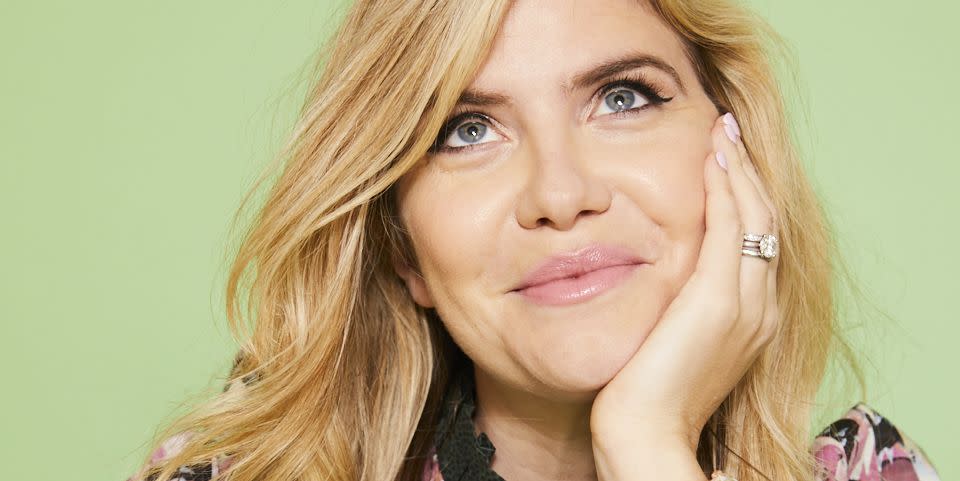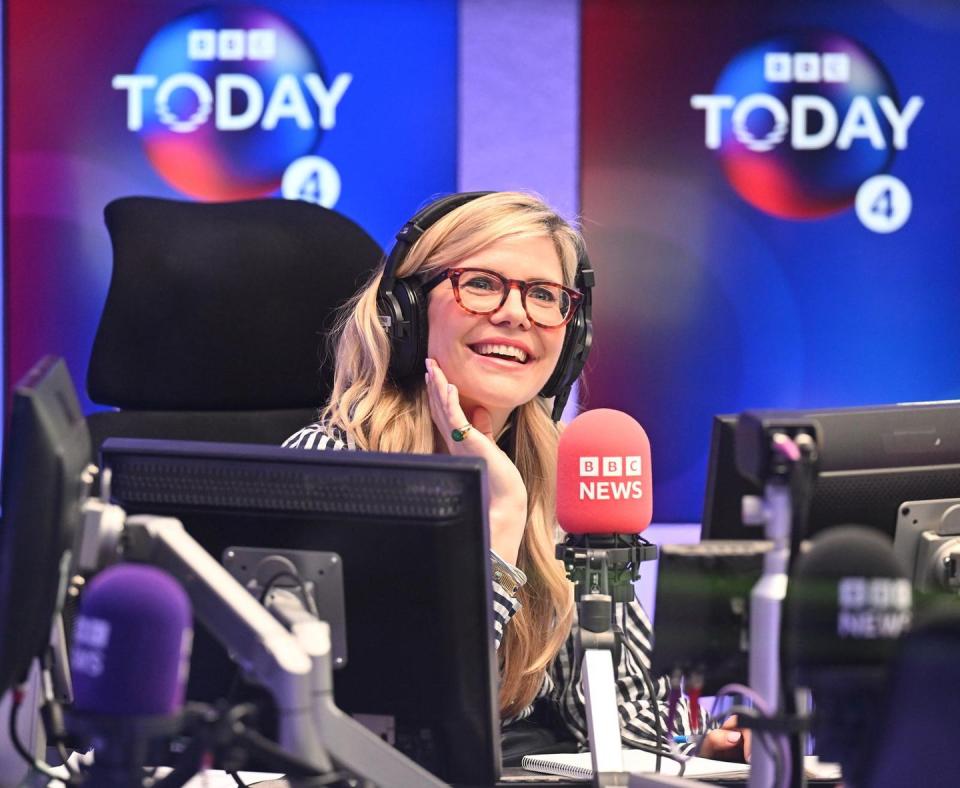Emma Barnett: "How will this election make you feel? Will it make you think that Britain is a good place to live?"

Emma Barnett was at home with her two children, about to put them to bed, when Rishi Sunak stood outside number 10, in the pouring rain, and announced a general election. The nation was surprised, but Barnett was not. After a decade of turbulence that has seen her report on news concerning Donald Trump, Brexit, a prorogation of parliament, three prime ministers in quick succession, the death of the Queen, the conflicts in Ukraine and the Middle East and a global pandemic, it felt like one more thing to add to “the list”. “I actually just sat there and thought: ‘huh, that's going to be an interesting shift tomorrow,’” she recalls.
In May, Barnett became the newest presenter of BBC Radio 4’s Today programme, the station’s flagship current affairs show. Sunak’s shock announcement occurred on her third day on the job. Barnett arrived after a high-profile role as a Newsnight presenter and three years of hosting Women’s Hour. She jokes that, before Today she was “only ever a 10am or 10pm girl” (referencing her late-night shows on LBC). Her new role comes with a 3.30am wake up call.
Joining in time for the general election means that Barnett has been thrust into the frontline of what she excels at: the political interview. She is renowned for her unapologetic spearing of question-dodging ministers, or for caustically pointing out the elephant in the room. She already has a headline-grabbing toe-to-toe with the Chancellor Jeremy Hunt under her belt. “It’s like you’re not actually listening to the answers I give,” Hunt lamented, after a heated discussion about his own personal wealth during the cost-of-living crisis. “I am listening incredibly carefully,” Barnett replied.
The interview sparked criticism on social media and the BBC received complaints, yet admirably stuck by its star presenter. In a statement following Hunt’s appearance on the show, a BBC representative stated: “We don’t agree that Emma was rude or aggressive in her line of questioning. We consider that she challenged Mr Hunt fairly and in line with other political interviews our audience regularly hears on the Today programme.”
“An interview with a politician is not an interview like any other,” she says, of her approach. “If anyone else was to come on the programme, they would not have not been briefed, but politicians have extensive briefing. Now, an interview like that has always been a chess match, but it’s become a chess match with slightly more rigid moves, because the party lines are more entrenched than ever. It is as though there is now a very set format for how the politicians and political parties think the interviews should happen.”
As the campaigning gets underway, who would she most like to interview? “It's not about who I want,” she says. “It’s the subject areas. I want to test certain theories, I want to see what the manifestos say, and if the policies hold up.” Barnett is, unsurprisingly, an avowed newshound who extensively researches each and every story.

“But I don't do it on my own,” she stresses. “I work with a really good team (at the Today programme). I have only known these people a few weeks, but we have already had to essentially emotionally move in with each other. They’re amazing brains.”
Barnett says that her priority, with every job she’s ever had, is to deliver for an audience. What do they want to hear? What questions do they need answered? In this way, ironically, she is operating somewhat in the mode of an elected politician, acting in the interests of their constituents. When it comes to the general election, her interests are therefore not party specific, but in how her listeners are being listened to.
“I want to look at the true opportunity, or lack thereof, in modern Britain,” she says, pointing out that this is especially relevant for younger voters. “If you are 18 and voting for the first time, how will this election make you feel? Will it make you think that Britain is a good place to live, that there are good things for you and your future family? What Britain will these policies create for those who have the longest amount of time ahead of them?”
Courting younger listeners is of the upmost importance for the BBC, especially at a time where online division is at its zenith and most of Gen Z are getting their political information from TikTok. In this regard, she sees her work at the Today programme, during a potentially seismic general election, to be vital.
“The BBC is working hard to expand its reach and also to just re-establish what the word impartial means to a new generation,” she says. She adds that she personally does not struggle with the station’s signature political impartiality. “We have to be alert to the way news is presented online,” she adds. “We’ve had to clip things for social media which are often seen out of context. So you only see a journalist interviewing one politician and you might miss that they do another politician from the other side in the next segment.”
Though she takes her responsibility as a public broadcaster in a general election very seriously, she stresses the magnitude of voting. “I don't take responsibility away from citizens – you’ve got to vote. If you’re old enough to have a vote and work and pay tax, you must,” she says. “And throughout all of this, I really hope that you’ve got the wherewithal and the media literacy to come and find us at the BBC. I want to welcome you with open arms and a cup of tea and a croaky ‘Hello’.”
You Might Also Like


